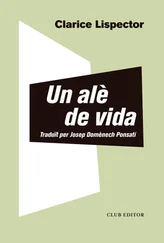When the children were small and had to be in bed long before midnight, we decided to forgo the traditional Christmas Eve Supper and have a celebration lunch on Christmas Day itself. The children eventually grew up but we continued to exchange gifts on Christmas Morning and celebrate over lunch.
With no supper to prepare on Christmas Eve, I had the evening to myself. But for the last three or four years I have fulfilled a solemn commitment on that evening.
This came about when I asked a girl, whom I did not know all that well, how I should spend my Christmas Eve. She immediately replied: ‘Do what I do on Christmas Eve. I take enough pills to make me sleep for forty-eight hours.’ I was astonished and intrigued, and asked her to explain. ‘Christmas always brings back sad memories. My father and mother both died at Christmas. After they were gone, I could never bring myself to celebrate Christmas again.’ I pointed out the danger of taking so many pills and warned her that, instead of sleeping for forty-eight hours, she might find herself sleeping forever.
Then I had an idea: perhaps in future we could spend Christmas Eve together and dine out in some restaurant. We could meet around eight o’clock in the evening and then she would see for herself how the city’s restaurants were full of people with neither a home nor anything resembling a home where they might spend Christmas Eve. After dinner she drops me off at my apartment and then goes to fetch an aunt who always accompanies her to Midnight Mass. We agreed that we would share the bill for dinner and exchange presents: presents to remind us that we have each other.
But one Christmas my friend had to cancel our arrangement and, though knowing that I was not religious, she gave me a Holy Missal. I opened it to find that she had written inside: Pray for me.
The following September, a fire broke out in my apartment which left me so badly burned that I hovered between life and death for several days. My bedroom was completely destroyed. Plaster fell from the ceiling and walls, my furniture and books were reduced to ashes.
I shall make no attempt to explain what caused the fire. But strange to relate, my Missal remained intact, apart from some slight damage to the cover.
At home I have a painting by the Italian artist Savelli. I valued it all the more when I learned that he had been commissioned to design the stained-glass windows in the Vatican.
However much I study the painting, I never grow tired of it. On the contrary, I always find something new to admire.
In the painting, the Virgin Mary is seated beside a window and it is clear from her swollen belly that she is pregnant. The archangel at her side is watching her. And the Virgin, as if overwhelmed by the archangel’s message, prophesying her destiny and that of future generations, raises her hand to her throat with surprise and anguish.
The angel, who has entered by the window is almost human: but those long wings remind us that angels can move from one place to another without touching the ground. Those wings are quite human: they appear to be made of flesh and the angel’s face is that of a man.
This is the most exquisite and harrowing truth the world has to offer.
All human beings experience annunciation. With pregnant souls we raise our hands to our throats with surprise and anguish. As if each of us had learned at a given moment in life that we have a mission to fulfil.
That mission is by no means easy: each of us is responsible for the entire world.
Thoreau was an American philosopher whose profound thoughts cannot be summarized in a newspaper article, but he wrote many things which might help us to lead a more rational, useful and agreeable life with rather less anguish.
Thoreau found it distressing, for example, to watch his fellow-men devote all their energies to making money for some distant future. That people should give some thought to their future was no bad thing. But ‘Do try to improve the present’, he would exclaim. Before adding: ‘We are living now .’ Thoreau sadly observed: ‘Men spend all their time hoarding treasures which will be eaten by worms, eroded by rust, or fall into the hands of thieves.’
The message is clear: do not sacrifice today for tomorrow. If you are unhappy at present, do something about it now, because we only exist from one now to the next.
Besides, if we examine our consciences, we can all remember moments that were lost nevermore to return. There are moments in all our lives which we regret having ignored, allowed to pass or refused, and that regret is as painful as the deepest sorrow.
Thoreau was anxious that we should lose no time in doing what we wish to do. All his life he preached and practised the need to waste no time in doing the things we believe to be important.
For example, he would urge all those young men and women who dreamed of being writers to start writing at once instead of making excuses that they were either too busy or lacking in talent and inspiration.
Nor did he have any patience with those people who waste so much time studying life that they never get down to living. He wrote: ‘It is only when we discard all knowledge that we begin to know.’
And he offered these bold words of encouragement: ‘Why not abandon ourselves to the torrent, why not open the flood-gates and put our whole mechanism into action?’ Those words are enough to send the blood coursing through my veins. And now, dear friends, means this very minute .
Thoreau believed that fear prevented us from exploiting the present. And our lack of self-confidence. He once wrote: ‘Public opinion is a feeble tyrant when compared with the low opinion we have of ourselves.’ It is true: even those people who give the impression of being self-assured have such a low opinion of themselves that they are simply concealing their fear. And this worried Thoreau, who believed that ‘how a man sees himself determines, or rather reveals, his destiny.’
And, surprising as it may seem, he would urge his readers to ‘take pity on yourselves’ whenever they were leading a life of quiet despair. He would counsel them not to be too hard on themselves at such moments. Fear, Thoreau argued, provokes unnecessary cowardice. In that situation, people should not judge themselves too harshly. ‘I believe,’ he wrote, ‘that we should have much greater confidence in ourselves. Nature conforms as much to our weakness as to our strength.’ Appalled at our common tendency needlessly to complicate matters, he repeated incessantly: ‘Aim for greater simplicity! Aim for greater simplicity!’
Not so long ago, I opened a newspaper and in an article by someone whose name I have alas forgotten, I found several quotations attributed to Bernanos which truly complement those of Thoreau, whom the French writer probably never read.
The author of the article comments at one point that Bernanos was ever prepared to castigate the falseness of the so-called ‘free world’. For he was seeking a ‘ Salvation achieved by taking risks without which life is worthless , and not by senile withdrawal which is not only practised by the elderly but by all those who defend their positions whether ideological or religious.’
Bernanos, the article went on, considered greed in all its forms to be the greatest sin of all. ‘Greed and apathy are destroying the world.’ And ‘both of these vices stem from egoism’, the author of the article concludes.
Overcome with the joy of living, I repeat: Salvation is achieved by taking risks without which life is worthless!
Читать дальше












